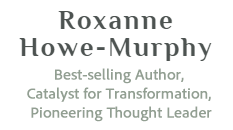How does one think about and hold the process of one’s own personal and spiritual growth? This is a fundamental question I’ve researched and studied for over two decades.
Perhaps you have found yourself thinking there’s something about you that needs to be “fixed” in order to achieve a state of fulfillment. That common assumption has fueled much of the self-help field, leading followers to try any number of strategies to “make themselves better.” For example, have you ever tried “adding something onto” yourself: a new look, a new accomplishment, a new persona to help you feel better about yourself? Or consider when you tried to “get-rid of something” that you thought was unacceptable, trying to stamp out or push away certain feelings or qualities, hoping that they will somehow just go away. Sometimes we might try to “transcend” or rise above whatever isn’t working and hang out in a more idealistic state. While each of these three common strategies has value under certain circumstances, and may even lead to external rewards, used as a basis for authentic development or a level of realization, they are flawed. Because they are mechanistic in nature, we find that we unconsciously treat ourselves almost like machines when we try these approaches, creating even further inner pain and suffering.
The basic flaw is that these strategies—adding, eliminating, transcending—are emblematic of the ego trying to fix the ego. And all the while it is neither possible for the ego to “fix” us nor is there anything to fix. Echoing Albert Einstein’s famous statement that “problems can’t be solved from the same consciousness that created them,” this wisdom applies to our evolution as awakening individuals as well as to the collective field of consciousness.
This radical awareness took root for me as truth when I began to understand the relationship between what we call the personality and our true nature or essence. The awareness of this relationship was a coming-home shock for me that radically shifted how I look at all change, including at the personal level. For, of course, if there is nothing in us to fix, what is the basis for recovering our true nature?
In Deep Living with the Enneagram: Recovering Your True Nature (revised and updated), I describe the relationship between personality and essence, and how that relationship profoundly affects how we treat ourselves on this journey of awakening to and embracing our true nature. If the personality is driving the charge, we will find ourselves repeating strategies that are, at their best, of momentary benefit. When we allow our personality patterns to relax—that is, when we get out of own way—new insights and possibilities arise. Rather than trying to do something to make ourselves better, we find solace in developing abiding trust in the guidance that comes with being attuned to our inner being and to Spirit itself.
Using the wisdom of the Enneagram as a vehicle for awakening, we find that we can develop our innate capacities for meeting ourselves (and others) with curiosity, compassion, acceptance, courage, radical honesty, and trust. These qualities are all grounded in presence and reorient us to ourselves, offering more access to and healing of the deeper realms of our own life. In the process of releasing ideas and beliefs that no longer serve us and that no longer hold truth, the sacredness of who we are is more clearly revealed to us.
Beyond self-help, this approach leads toward less self—as we have come to know it through the ego—and instead leans more toward an expanded and freer sense of being, touching into the mysteries of life.
Deep Living with the Enneagram: Recovering Your True Nature, Revised and Updated Edition is now available for presale at: https://www.amazon.com/Deep-Living-Enneagram-Recovering-Revised-ebook/dp/B07ZHMLJVV



